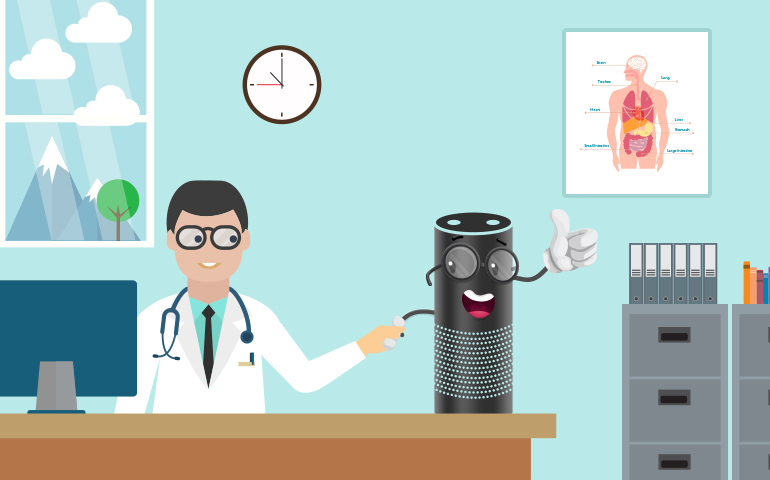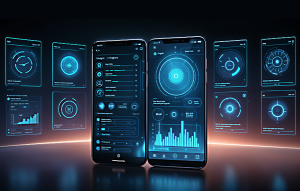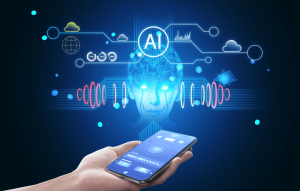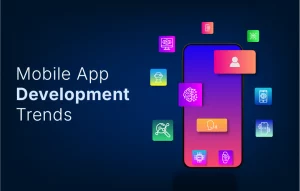Amazon Echo has ended up as a surprise hit in the consumer market and its presence is not just limited to home, but many enterprises have started using this smart device for their businesses, for example, we have started using Alexa for our smart office. This personal voice assistant doesn’t need any formal introduction as everyone knows it can play music, add things to your shopping list, order pizza, book a cab, set an alarm and do many more things you never thought about. Along with these activities, it will not take a long time when Alexa will become commonplace for interacting with everything from retail outlets to school or banks. Very soon doctors, nurses, patients and even pharmacists will start using Alexa in their personal and professional lives.
How Alexa can be game-changer for healthcare professionals and patients
Alexa is a hands-free device that means people can activate it even if their hands are dirty, injured or just busy at work. People can talk to it in a noisy environment too, for example, a hospital admission area. It has the complete ability to take care of a person, as patients can talk with it whether they are in the hospital or at home.
Let’s understand this whole scenario by having few examples:
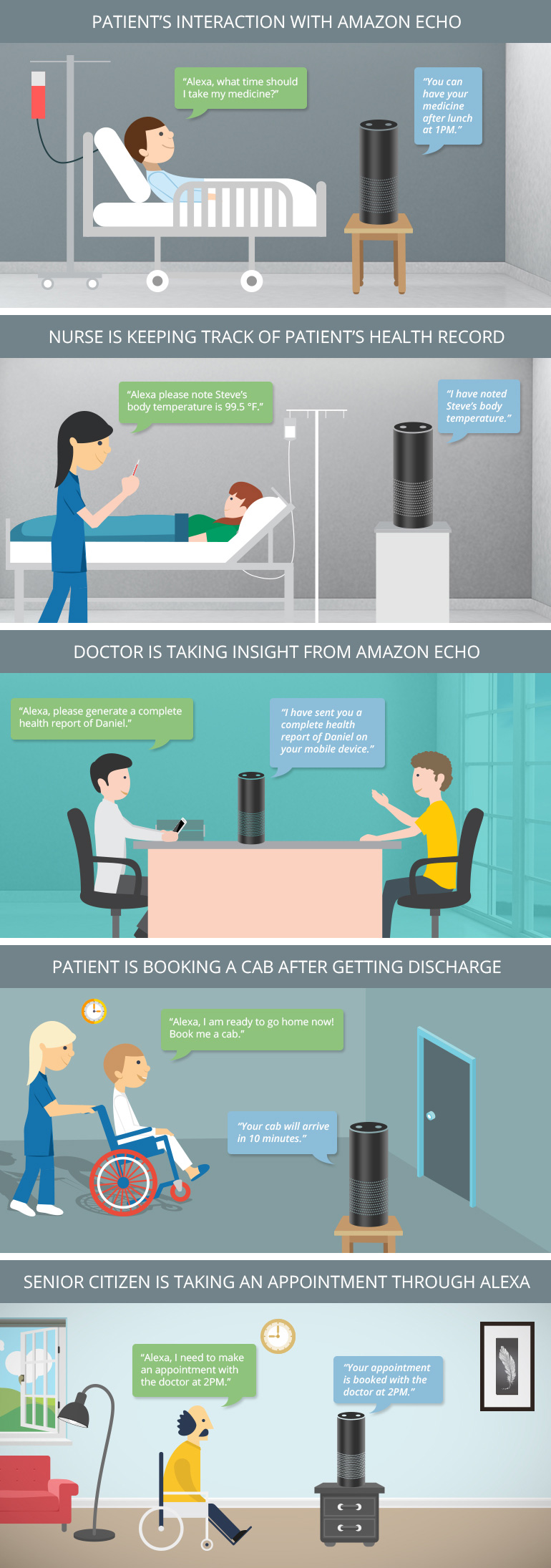
Here are a few potential use cases of Alexa in healthcare
- With Alexa, healthcare professionals can access a patient portal without logging into their computers.
- Doctors/nurses can answer patients’ questions about their symptoms, health condition, medications and upcoming appointments.
- Patients can book an appointment through Alexa and also request medication refills from the pharmacy. They can also send a message to hospital staff, nurse or caretaker.
- Patients can send their medication or health reports to their doctor or nurse.
- Alexa can help patients with poor eyesight or handicap patients by reading kindle books, playing music for them or adding things to their shopping cart.
- Alexa can record the food intake of the patients.
- Alexa can also remind patients to take their medicines or scheduled food.
- Its listening capabilities can be used to observe the voice quality of patients with Parkinson’s disease as part of a health-monitoring program.
- Patients can use Amazon Echo to call for help in health emergency situations.
- Bed-ridden patients can use this voice assistant to control the room temperature, TV, music, even they can book a cab.
- Not only these, but also can patients command Alexa to open and close doors on voice commands, turn on and off fan or lights etc.
Is it actually possible to build these use cases with Alexa?
You must be thinking how all of these things are possible with such a small device. Here is the answer – this is a 9.25-inch (23.5 cm) tall cylinder speaker with a seven-piece microphone array runs on a small code on the device that makes it listen to its wake up call “Alexa”. Once the device hears the ‘wake word’, the Echo transfers everything it hears from the person to Amazon’s cloud. There, it transforms the speech into text that the system tries to translate using natural language processing. After that an AI discipline analyzes the sentence structure and syntax. Alexa tries its best to understand the commands and then search the right database to get the relevant info. For example, if a person asks, “How tall is the Statue of Liberty?” Alexa will send the question to a knowledge database such as Wikipedia. Same as you ask her to read a book, it will go to Amazon’s own store of valuable data on books. This is how Alexa works. So, the use cases we have seen above are possible to build using Alexa’s AI abilities.
Now let’s see the future of the healthcare industry with Amazon’s Alexa Voice Service:
In the near future, Alexa will be even smarter due to its learning capabilities through Alexa Skills Kit (a built-in capability, referred to as skills. For example, Alexa’s abilities include playing music from various music providers, answering questions and providing weather forecasts) and AWS Lambda (an Amazon Web Services offering that is a service that lets developer run code in the cloud without managing servers).
With Alexa, people will be able to create a custom interaction model for the skill. It completely depends on how people want to create their service. With these AI capabilities, we can expect that Alexa will translate medical instructions for non-English-speaking patients in the near future, for example, English to French and vice versa. Even at the time of discharge, Alexa will ask, “It’s about time to go home. Should I get you a car? And you will just say, “Yes!”
Amazon Echo app development is new for some but this trend can enhance the healthcare experience for all the users of healthcare industry. You can also be smart with Alexa and provide a good experience to your patients. For more details please contact Softweb Solutions at info@softwebsolutions.com or call our experts on 866-345-7638.


